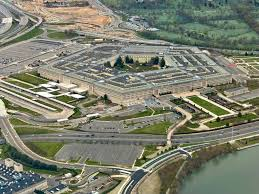
Table of Contents
The Pentagon’s ongoing financial support for EcoHealth Alliance, despite the organization’s suspension from federal research grants, has become a topic of significant scrutiny and debate. This situation, marked by complexities surrounding gain-of-function (GOF) research and international data access, sheds light on the intersection of national security, public health, and scientific inquiry.
Background and Controversies
EcoHealth Alliance, a nonprofit organization known for its work in global health and wildlife disease research, has been a focal point in discussions about gain-of-function research. Gain-of-function research involves manipulating viruses or other pathogens to enhance their capabilities, such as increasing their transmissibility or virulence. This type of research can provide valuable insights into how diseases might evolve and potentially help in developing countermeasures. However, it also carries risks, especially if the research is conducted on highly pathogenic organisms.
In 2020, EcoHealth Alliance’s activities came under intense scrutiny after reports emerged about its involvement in GOF research at the Wuhan Institute of Virology (WIV) in China. The organization had received federal funding from the National Institutes of Health (NIH) for projects involving the study of bat coronaviruses. These projects were believed to include GOF elements that could have potentially led to a better understanding of viral evolution and pandemic preparedness.
The controversy surrounding this research intensified with the emergence of COVID-19, leading to widespread speculation about whether the virus could have originated from a laboratory accident. Although investigations have not conclusively proven this theory, the debate has had significant repercussions for EcoHealth Alliance. In 2022, the NIH suspended the organization’s funding, citing concerns about the management of GOF research and the adequacy of safety protocols.
Pentagon’s Funding and Strategic Interests
Despite the suspension by NIH, the Pentagon has continued to funnel money to EcoHealth Alliance. This funding primarily supports research that aligns with the Department of Defense’s (DoD) interests in biodefense and global health security. The Pentagon’s decision to maintain financial support can be understood through several lenses.
Firstly, the Pentagon’s investment in EcoHealth Alliance reflects a strategic interest in enhancing global health security and mitigating biological threats. The DoD views pandemics and bioterrorism as significant risks to national security. By supporting EcoHealth Alliance, the Pentagon aims to leverage the organization’s expertise in zoonotic diseases and surveillance systems, which are crucial for early detection and response to biological threats.
Secondly, the continued funding underscores a strategic and practical need to access and analyze international research data. The Pentagon’s support ensures that U.S. military and public health officials can remain informed about emerging pathogens and their potential implications for national security. This data access is vital for developing countermeasures and preparedness strategies.
Challenges in Data Access and International Collaboration
One of the key issues exacerbated by the suspension of NIH funding is the challenge of accessing research data from abroad. EcoHealth Alliance had collaborations with various international institutions, including the Wuhan Institute of Virology. The suspension of NIH funding has limited the organization’s ability to engage in these international partnerships and obtain crucial data.
The loss of access to this data hampers efforts to understand the evolution of viruses and to develop predictive models for outbreak scenarios. The Pentagon’s funding aims to mitigate these challenges by ensuring that EcoHealth Alliance can continue its research and maintain international collaborations, even in the face of regulatory and funding barriers.
Moreover, the Pentagon’s support helps to navigate the complexities of international scientific diplomacy. By continuing to fund EcoHealth Alliance, the Pentagon maintains a foothold in global health research networks, allowing for ongoing collaboration and data sharing despite political and regulatory obstacles.
Ethical and Strategic Implications
The Pentagon’s financial support for EcoHealth Alliance raises important ethical and strategic questions. On one hand, the funding can be seen as a pragmatic approach to ensuring that critical research continues and that national security interests are safeguarded. On the other hand, it highlights the tension between scientific freedom and national security concerns.
The ethical debate centers on whether it is appropriate to fund research that might involve high-risk elements, particularly when such research is conducted in international settings with varying levels of oversight. Ensuring that safety protocols are rigorously followed and that research is conducted transparently is essential to maintaining public trust and minimizing risks.
Strategically, the Pentagon’s funding represents a broader effort to integrate scientific research with national security priorities. This approach emphasizes the importance of interdisciplinary collaboration and the need to address global health threats through a combination of scientific, military, and diplomatic efforts.
Conclusion
The Pentagon’s continued support for EcoHealth Alliance amid the organization’s suspension from federal research grants underscores the intricate balance between advancing scientific research and addressing national security concerns. The funding reflects the Pentagon’s commitment to global health security and its strategic interest in maintaining access to international research data.
However, this situation also highlights the challenges and ethical considerations associated with high-risk research and international collaboration. As the debate continues, it is crucial to carefully evaluate the implications of such funding decisions and to ensure that research is conducted with the highest standards of safety and transparency.
In navigating these complexities, policymakers, scientists, and security officials must work together to balance the pursuit of knowledge with the imperative of safeguarding public health and national security. The ongoing support for EcoHealth Alliance serves as a reminder of the interconnected nature of scientific research, global health, and security, and the need for continued dialogue and collaboration in addressing these pressing challenges.







